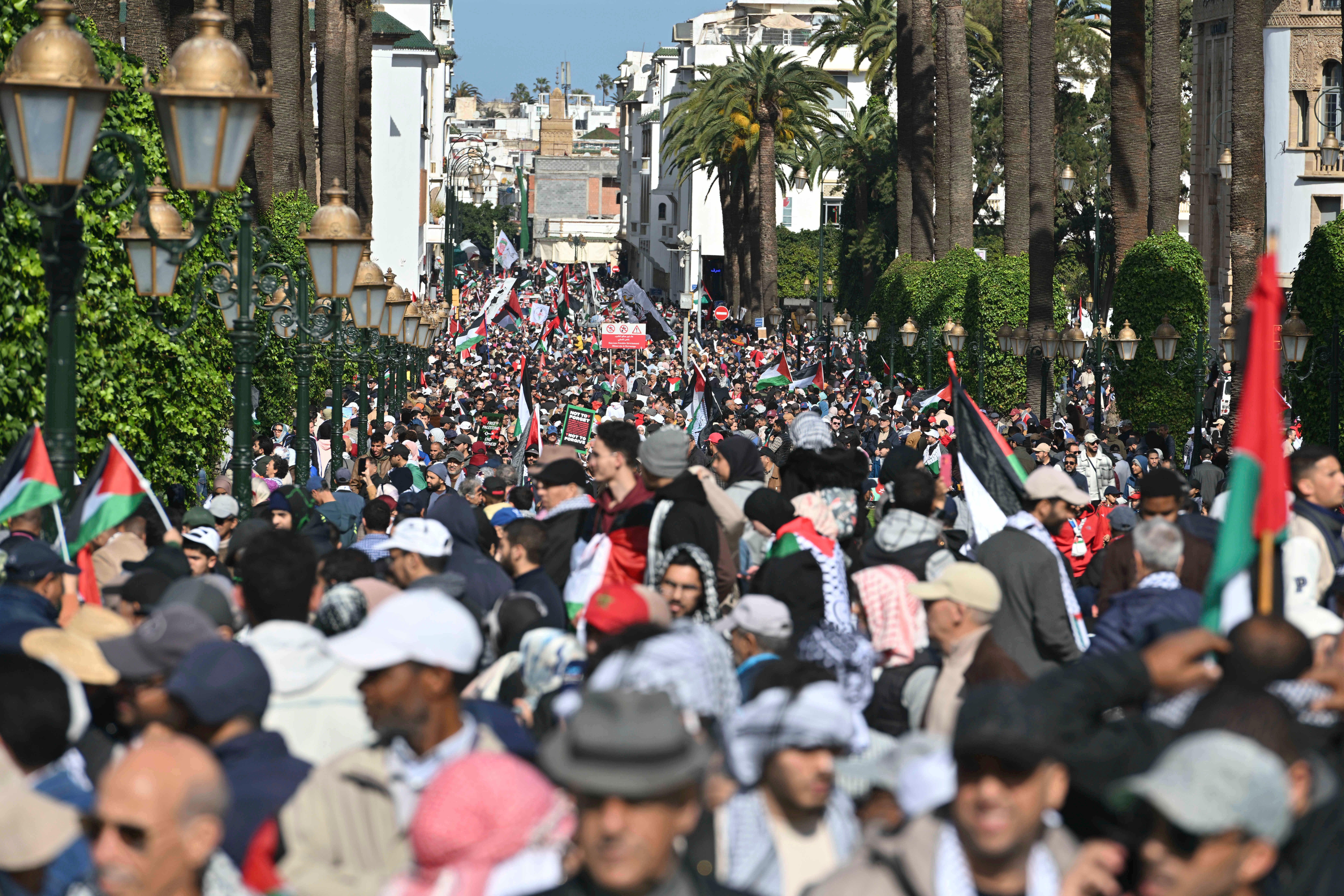A Moroccan activist was sentenced to 5 years for criticizing the country’s ties to Israel
An activist who criticized Morocco’s decision to normalize relations with Israel has been sentenced to five years in prison

Your support helps us to tell the story
From reproductive rights to climate change to Big Tech, The Independent is on the ground when the story is developing. Whether it's investigating the financials of Elon Musk's pro-Trump PAC or producing our latest documentary, 'The A Word', which shines a light on the American women fighting for reproductive rights, we know how important it is to parse out the facts from the messaging.
At such a critical moment in US history, we need reporters on the ground. Your donation allows us to keep sending journalists to speak to both sides of the story.
The Independent is trusted by Americans across the entire political spectrum. And unlike many other quality news outlets, we choose not to lock Americans out of our reporting and analysis with paywalls. We believe quality journalism should be available to everyone, paid for by those who can afford it.
Your support makes all the difference.An activist who criticized Morocco’s decision to normalize relations with Israel was sentenced to five years in prison, as some of the Arab world's largest pro-Palestinian protests continue to sweep the country.
Abdul Rahman Zankad of Mohammedia, Morocco was arrested in March after posting on Facebook about the Israel-Hamas war and Morocco’s 2020 decision to establish diplomatic ties with Israel, the Moroccan Space for Human Rights said in a statement.
A court on Monday found him guilty of insulting a constitutional institution and incitement. He was also fined 50,000 Moroccan dirhams ($5,000). The civil liberty advocacy group, which organizes the legal defense of protesters, called the charges baseless and said the proceedings violated Zankad's right to a fair trial.
Tens of thousands of protesters across the political spectrum have taken to the streets in Morocco to denounce Israel and express support for Palestinian groups, including Hamas. The protesters have criticized Israel’s allies including the United States and chanted demands for the government to “overturn normalization.”
Morocco was one of four Arab nations to establish ties with Israel in 2020, as part of the U.S.-brokered Abraham Accords, which led to both the United States and Israel recognizing Morocco’s claim over the disputed Western Sahara.
Authorities have allowed protests, with few exceptions, including not allowing a recently planned rally at a northern Moroccan university. Some members of parliament have backed their demands. Both the Foreign Ministry and the Royal Palace have issued statements denouncing the war and expressing solidarity for Palestinians in Gaza but not signaled any intent to cut ties with Israel.
Morocco’s constitution generally allows for freedom of expression, although it is illegal to criticize the monarchy or King Mohammed VI and those who do can face prosecution. Human rights associations have raised concerns about a rise in prosecutions stemming from online post in recent years.
Zankad is a member of Morocco’s Al Adl Wal Ihsane, a banned but tolerated Islamist association that has been a driving force behind many of the country’s protests since the war began.
On Monday the group called said his sentence “only serves to solidify the certainty that we are in a state riddled by authoritarianism and tyranny.”
“We condemn this unjust ruling in the strongest terms. It is a continuation of the unjust rulings targeting opponents from Al Adl Wal Ihsane, journalists, and leaders of the Rif Movement,” it added, referencing a 2016 protest movement whose leaders were later sentenced and imprisoned.
The group has also condemned the prosecutions of other opponents of normalization. That includes Said Boukyoud, who in November was sentenced to three years in prison for insulting the king in a series of Facebook posts about normalization.
It also includes 13 protesters who were arrested in Sale, Morocco in November for incitement and organizing an unauthorized demonstration after they blocked the entrance to the French grocery store Carrefour. In Morocco and elsewhere, the chain has faced boycotts since its franchises in Israel announced they were providing food to Israel’s military last year.
Their case has not yet been decided.